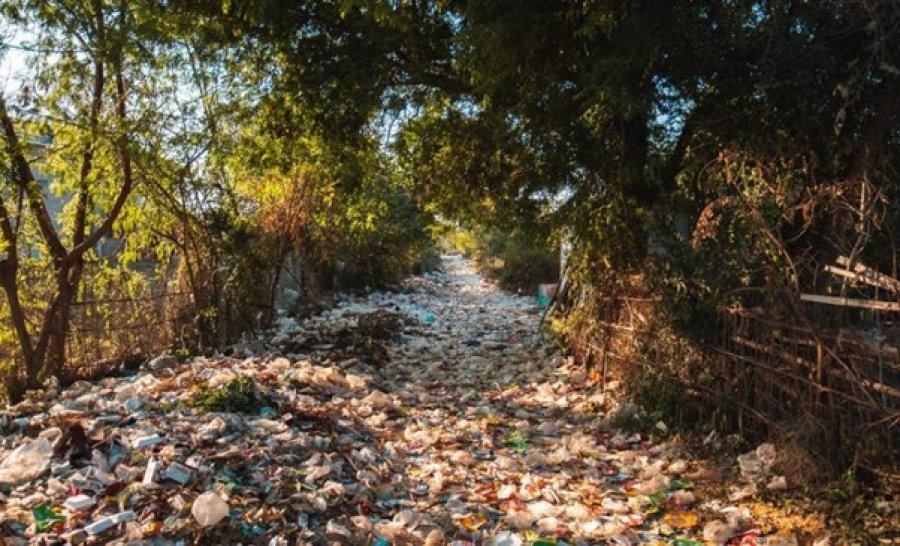
Plastic waste in river
Image: Plastic pollution, Myanmar. Stijn Dijkstra
Researchers from the London School of Hygiene & Tropical Medicine IMMANA project team conducted a largescale systematic scoping review of research from the last 20 years to understand the planetary health challenge relating to food system plastics.
They discovered that almost half of all studies were generated by five countries - China, USA, India, Spain and Italy, with very little evidence from low income contexts.
Although issues around plastic cutlery, straws and coffee cups are widely discussed in the media, there was little scientific evidence on their specific impacts. Conversely, the team found large bodies of evidence on agricultural plastics such as mulch, greenhouses and tunnels, as well as plastics used for storage and processing. The benefits and harms of plastic packaging, including bacteria control, chemical leaching, pathogen barriers and nutrient quality were found to be well-researched, but few studies addressed how these actually affect humans.
Joe Yates, who led the study, said: “The lack of solid research on emblematic objects such as straws, cutlery and coffee cups signifies that research agendas are not always aligned with public debate and policies. Large reviews like this are important for identifying key gaps and for directing research to underpin evidence-based decisions on plastics.”
The research highlights a particular shortfall in evidence from low income countries — where different challenges may drive plastic-use and where context specific trade-offs need to be considered.
Despite numerous initiatives to address plastic use around the world, for example, Bangladesh’s plastic bag ban or Canada’s imminent removal of single-use plastics, there was little analysis of policy impacts—particularly around human health and food security.
Megan Deeney, who co-led the study, added: “This review has shown that complex trade-offs will likely exist as we seek to move towards circular economy models where plastics are removed, reduced, reused or recycled. We need to consider the interactions between human health, environmental and economic outcomes when formulating policies, but the evidence base is currently imbalanced.”
By conducting this review and assembling the literature in an interactive dashboard, it is hoped that key knowledge gaps will be filled through collaboration across disciplines, sectors and geographies.
Key resources
Publication
- Joe Yates , Megan Deeney, Heike B. Rolker , Howard White, Sofia Kalamatianou1 and Suneetha Kadiyala . A systematic scoping review of environmental, food security and health impacts of food system plastics. Nature Food. DOI: https://doi.org/10.1038/s43016-021-00221-z
Data
Blog
If you enjoyed this article and would like to build a career in global health, we offer a range of MSc programmes covering health and data, infectious and tropical diseases, population health, and public health and policy.
Available on campus or online, including flexible study that works around your work and home life, be part of a global community at the UK's no.1 public health university.
